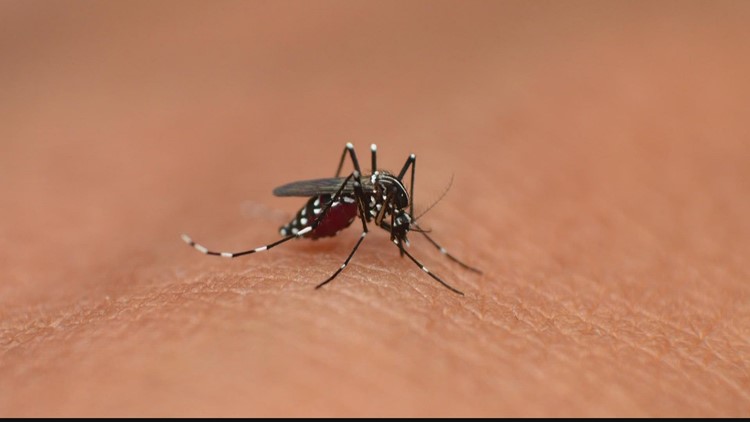GEORGIA, — Data released Tuesday from the Centers for Disease Control and Prevention (CDC) reveal increased West Nile virus cases in Georgia. Six cases have been reported in the state, up from two on Aug. 21.
The new cases are concentrated in metro Atlanta, with reported infections in Fulton, DeKalb, Hall, Richmond, Cherokee, and Chatham counties. Each county has reported one case of the virus.
The West Nile virus is primarily transmitted through the bites of infected mosquitoes, the CDC said and tends to peak in the United States from July through October. Nationwide, 33 states have reported human cases of West Nile, totaling 289 infections, including 195 instances of neuroinvasive disease, which affects the central nervous system. Texas currently leads with the highest reported cases, standing at 41.
Understanding West Nile virus
The CDC said the West Nile virus is part of a group of flaviviruses, including St. Louis encephalitis and Powassan viruses. The virus typically circulates between mosquitoes and birds. Humans can contract the virus when bitten by an infected mosquito. However, people are considered "dead-end hosts," meaning they do not produce enough levels of the virus in their bloodstream to pass it on to other mosquitoes.
While most infected with West Nile virus show no symptoms, about 1 in 5 people develop a febrile illness characterized by fever, headache, body aches, joint pains, vomiting, diarrhea, or rash. Severe symptoms affecting the central nervous system occur in approximately 1 in 150 people and may include encephalitis or meningitis. People over 60 and those with certain medical conditions are at a higher risk for severe illness.
Prevention and protection from
There are currently no vaccines or specific treatments for West Nile virus. Prevention focuses on protecting against mosquito bites. The CDC recommends the following measures:
- Use insect repellent.
- Wear long-sleeved shirts and pants.
- Treat clothing and gear with permethrin or buy permethrin-treated items.
- Take steps to control mosquitoes indoors and outdoors.
Additionally, those recently diagnosed with West Nile virus should avoid donating blood or bone marrow for 120 days due to the risk of transmission.
For more information on the West Nile virus, its symptoms, and prevention methods, visit the CDC's website here.
According to the Georgia Department of Public Health, 81 cases of West Nile virus were reported among Georgia residents between 2018 and 2022. As mosquito season continues, public health officials urge residents to remain vigilant and take necessary precautions to prevent the virus from spreading further.
Visit the CDC's Mosquitoes website for more information on the West Nile virus and how to protect yourself.



